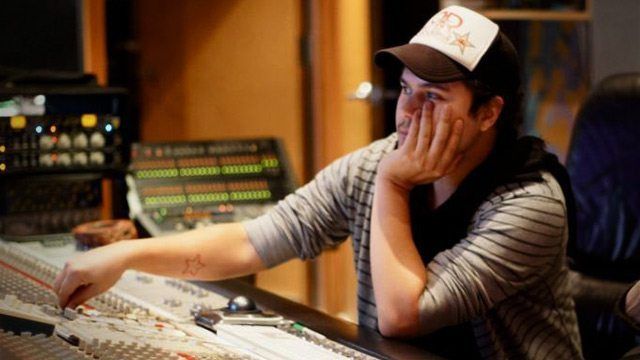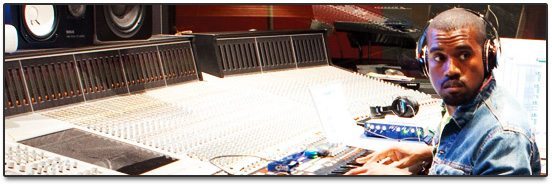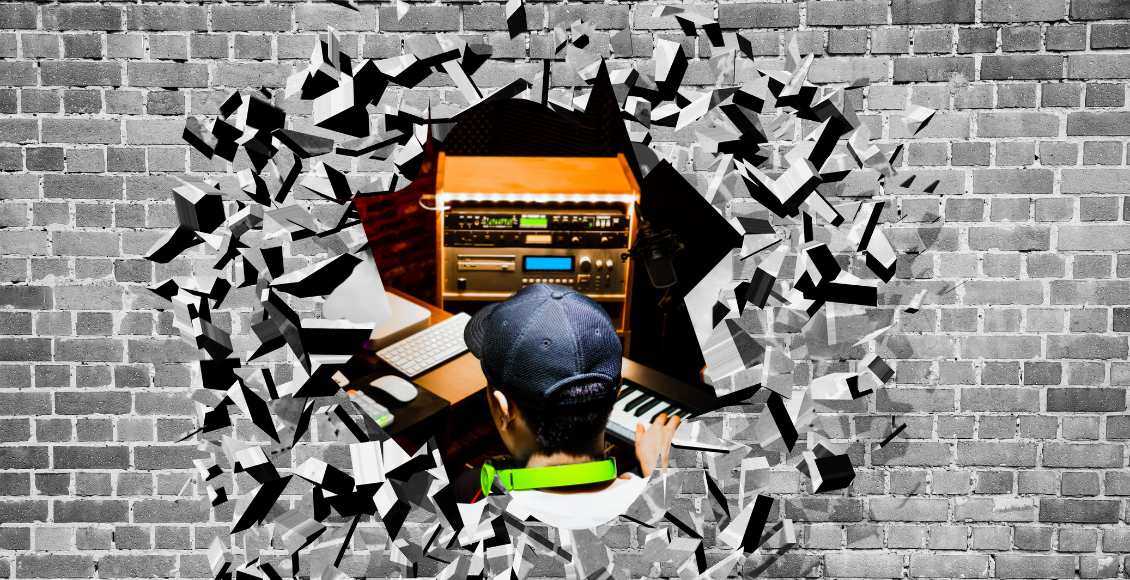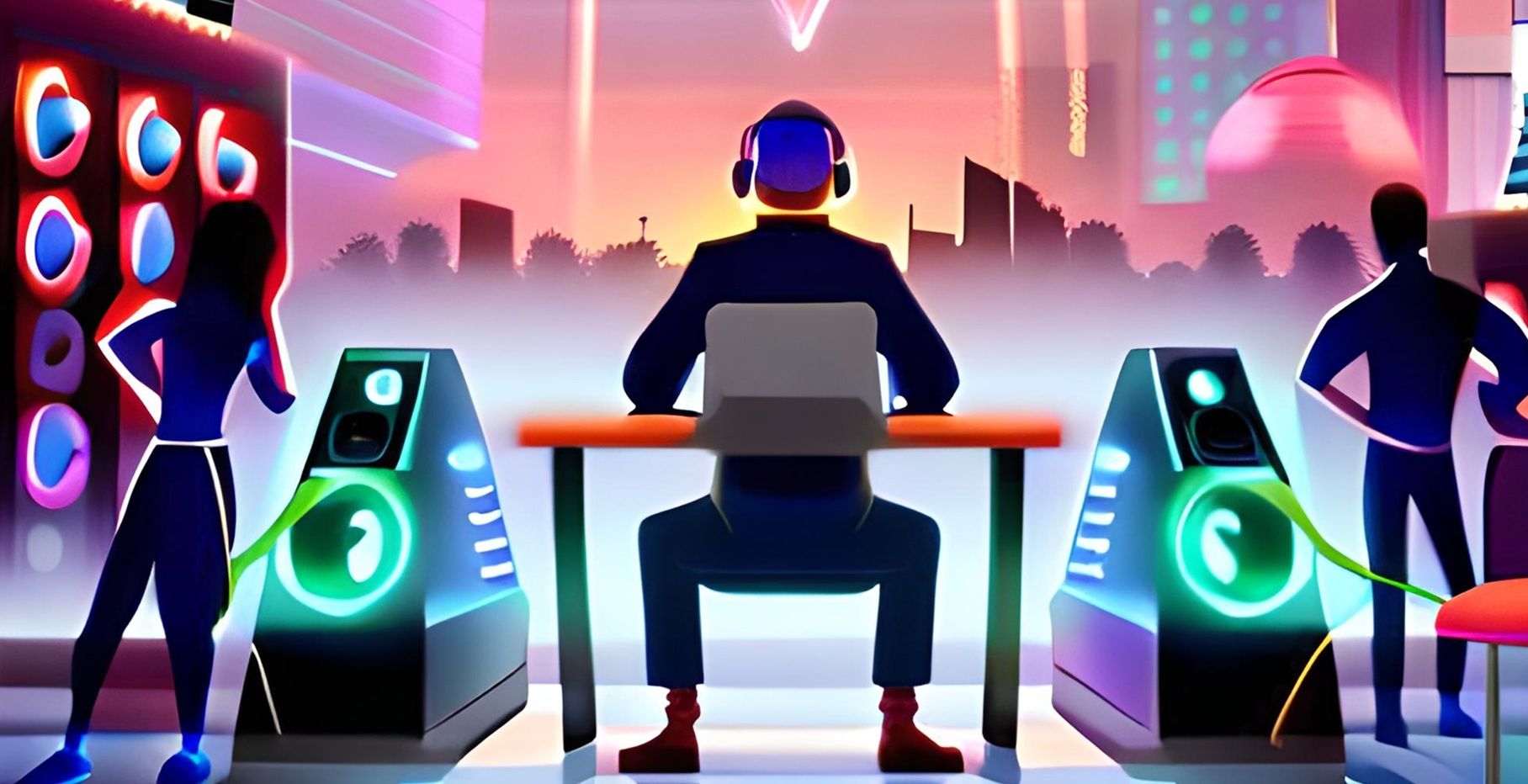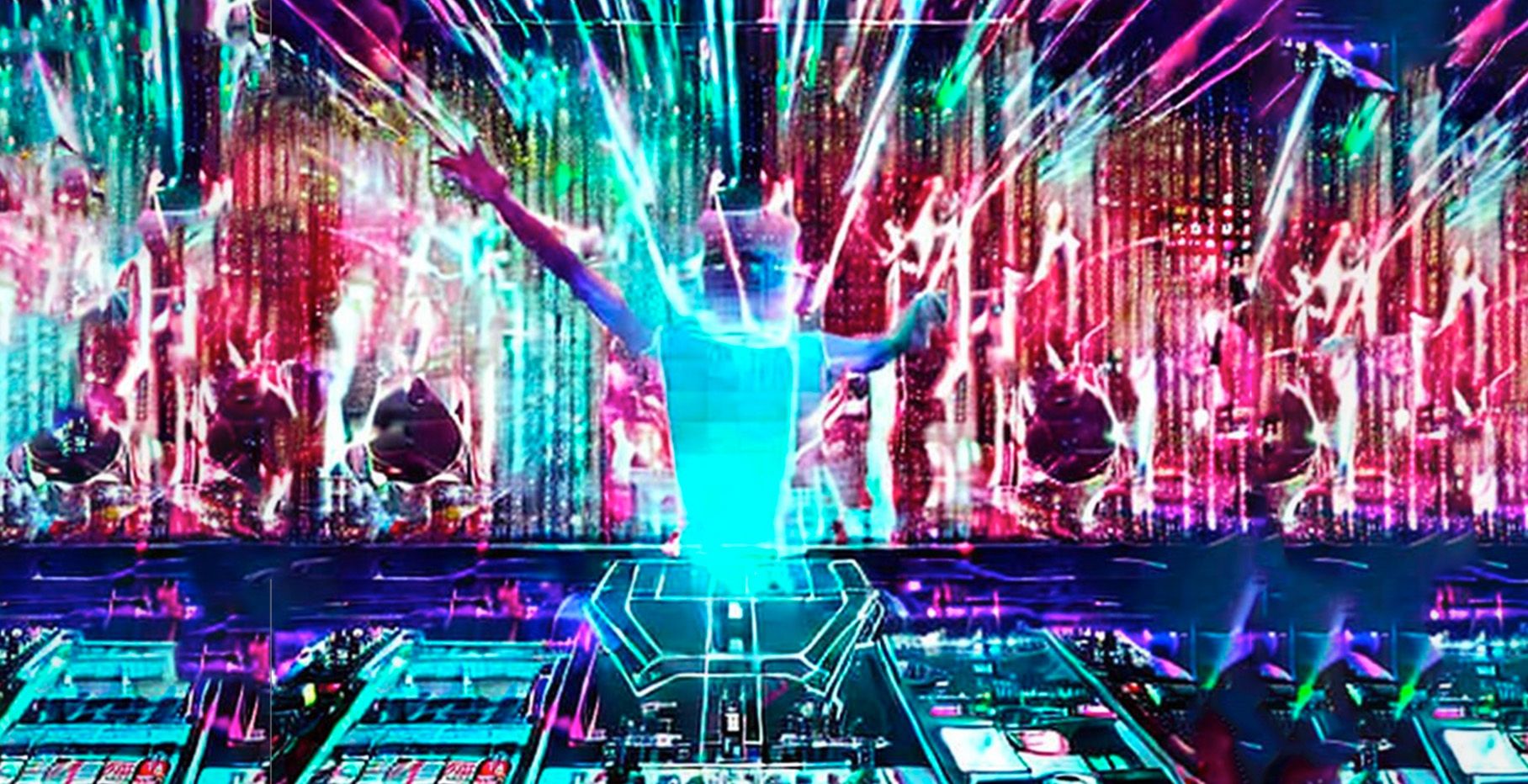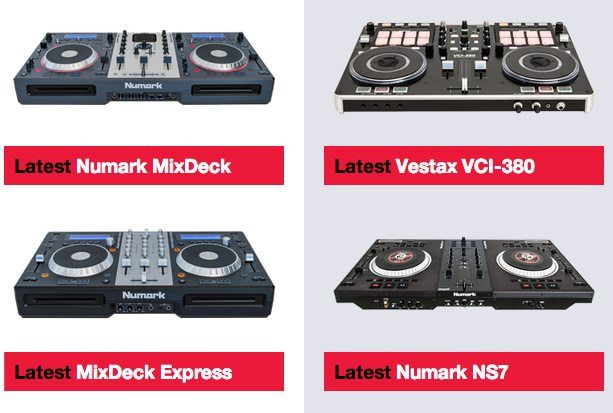There’s nothing worse than sitting down to work on a music production project and having no ideas at all. Or you have ideas, but within a few minutes of working on them, they just don’t excite you any more. Especially when this becomes a trend that continues for days, or even weeks and months. Whether you’re working professionally under a deadline, or just trying to relax and have fun, that feeling of “writer’s block” can be a terrible thing for any artist – DJs and producers alike. In this article you’ll find some of the best advice for turning around a stagnant project – read on!
PRODUCER’S BLOCK
This idea of producer’s block seems to happen more frequently the longer you’ve been following your passion. Early on when you’re first getting into writing music, there’s always a wealth of information to draw on for ideas. You’re just scrambling all the time to glean any bit of advice or new techniques you can use, and it’s easy since there’s still so much to learn. Not to mention all the tools are new, so many times just going through the motions of learning new gear can trigger new ideas. It’s one reason ‘gear lust’ is such a powerful driving force in our creative pursuits.
 Unfortunately after we’ve been writing for more than a few years, truly new ideas and tools come at us less frequently, and we’re called upon to rely solely on our creativity to produce results. So when the ideas appear to run dry, we’re left with that feeling of “now what?”, and we begin to question if this is really what we were meant to be doing in life after all.
Unfortunately after we’ve been writing for more than a few years, truly new ideas and tools come at us less frequently, and we’re called upon to rely solely on our creativity to produce results. So when the ideas appear to run dry, we’re left with that feeling of “now what?”, and we begin to question if this is really what we were meant to be doing in life after all.
Luckily, you’re not alone, this is something that every artist (regardless of the medium they work with – DJs, this means you too!) goes through. In this guide I’m going to explore some of the ways that I’ve found to help push through these trying times, and get you back to doing what you love.
Not all of these ideas are unique, nor will they work for all people. A few of you will be able to repeatedly use the same idea to get through mental blocks, while others will need to use a combination of these concepts, or even use them as a way of coming up with their own techniques. The point is to realize that it is possible to work your way through a creative rough spell, even if it might just take longer than you think.
So, let’s get to it with some ideas:
1. JUST WORK THROUGH IT
For the professional musician, this is sometimes your only choice. If you don’t continue to try and produce a result, you don’t get paid. Certainly it’s the most stressful situation to be in, but that’s part of making a living from relying on a creative endeavor. For many people, the inability to overcome the creative hurdles when they appear like this is by far the largest obstacle keeping them from even considering a career in the arts.
Often times the best way to get through dry spells is to just keep trying new ideas, to do your best to avoid the blank page syndrome writers often refer to. Where the fear of being in a rut is actually keeping you from even getting started in the first place. As a result you just end up staring at a blank piece of paper (or in this case a blank DAW project screen) wondering what to do next, where to start, how to get back ‘that feeling’ you get when the ideas are flowing fast and freely.
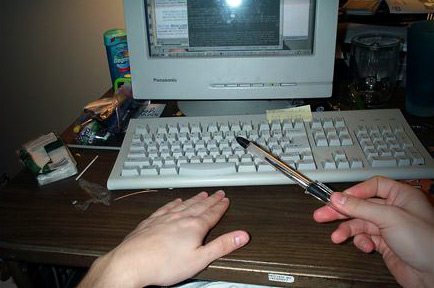
The trick is to not let yourself get stuck looking at a blank screen. Try some of these ideas:
- Grab some loops or samples you may have collected earlier and place them randomly in your project. Try grabbing random sounds you normally wouldn’t put together, just to see what will happen.
- Quickly record 3 notes with a synth or other instrument, repeat on a new track with a different instrument. Continue doing this, limiting yourself to only 3 notes to keep it simple and to make you work fast. Try looping the results, throw random effects on, switch synth sounds from what you originally recorded.
- If you have a mic, try tapping out a basic rhythm on your desk with just your hands or pencils. Overdub this with more hand drumming, use different sized pens, or tea coasters, anything that’s easily at hand and doesn’t require you to spend a lot of time setting up to record. Just fill up the project with a basic rhythm to work off of.
- Grab loops from your past songs and try to create a super remix of everything you’ve written in the last 3 years.
- Ask a friend if you can remix one of their songs. I’m sure you could also find many people online willing to let someone have a go at reinterpreting one of their songs.
- Have a DAW template prepped and ready to go. Instead of starting from scratch each time you write a song, set up your favorite synths and effects in the DAW and save it as a template. This not only saves you time, it gives you something to quickly fall back on when you have an idea.
- Set yourself a goal or starting one song every day for a week. Even if you hit on something you like, the next day start totally over from scratch and try writing a new song. At the end of the week, go back and listen to what you’ve done each day and pick the best one to continue working on.
The main point of things like the above is to work fast, don’t worry about the quality of the recordings, that’s not the point. The point is to get SOMETHING in front of you as fast as possible. Even if it’s just random garbage when you’re done, you’re at least doing something, and thus hopefully more likely to have one of those happy accidents that often spark the best creative ideas in us. The key here is to keep trying, don’t give up.
DJTT Inspiration: Try making Mad Zach style soundpacks to work through producer’s block.
2. CHANGE YOUR WORKFLOW
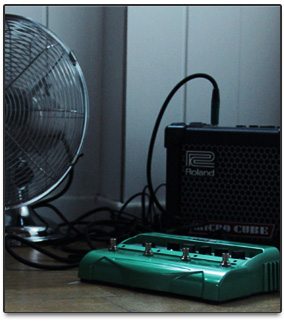 Sometimes you don’t need new gear to trigger inspiration, you just need to look at the gear you have differently. Even if it doesn’t help you necessarily come up with an idea for a new song, you’ll have gained a greater insight into the tools you have at your disposal, and that’s never a bad thing.
Sometimes you don’t need new gear to trigger inspiration, you just need to look at the gear you have differently. Even if it doesn’t help you necessarily come up with an idea for a new song, you’ll have gained a greater insight into the tools you have at your disposal, and that’s never a bad thing.
This is something I personally use a lot to try and work through rough creative times – here’s some ideas for approaching your gear differently:
- If you primarily work in software, try working in hardware. This doesn’t mean you need to go out and buy a new groovebox (though it might not be bad idea either), but maybe instead of only using softsynths and a computer for your sounds, you borrow a friend’s hardware synth and learn how to use that. Some music stores will rent gear as well. Even something like a cheapo Casio keyboard you buy at a thrift store can be a new way of working. Keep an open mind, just have fun with whatever you find. It doesn’t have to be a $2000 synth to be a valuable tool in your studio or spark some fun ideas to explore.
- Experiment with a microphone or portable recorder. You can get cheap mics at almost any electronics store, and even a decent mic like a general purpose Rode can be found for cheap on Ebay or Craigslist. Try writing a song using only found sounds you record with the mic, or vice versa if you mainly work with mics and real instruments.
- Learn an instrument. I think the term ‘electronic musician’ is slightly misleading, as very few people writing electronic music seem to play an instrument. They’re more like Electronic Producers in my opinion. Think about taking this down time to start learning something like the piano, guitar, or even hand percussion like a Djembe. I don’t think being able to play a “real” instrument is ever a bad thing for people writing music, and often times it can completely change how you approach the writing process too.
- Create complex signal chains. Sometimes I’ll run my keyboard into my drum machine, sample that, feed it through a guitar processor, into my DJ mixer, then run it through the keyboard inputs again. You can do the same in software too, try chaining a bunch of effects plug-ins to create some crazy processing chains. The key is to do things differently than you normally would, so don’t use your usual standby plug-ins. Try crazy combinations you normally would expect to sound awful, surprise yourself.
- Gear swaps. This one might not be possible for everyone, but if you have some close friends who write music, maybe you could trade gear temporarily with them. You both get a bit of the gear lust sated, and it should trigger some new ideas for you and them. Obviously you should only do this with friends you really trust though!
- Don’t write the same parts first. Many people start out writing their songs with the drums and bass, or with a sample loop they like. Try starting a song with something different, like a pad sound, or the melody. Better yet, try writing a song with no drums at all, or one that’s nothing BUT drums. Ever try writing a song using only a piano? You don’t have to be Chopin on the piano, try taking some piano samples and see how far you can tweak and mangle them to create something new.
3. CLEAR YOUR GEAR = CLEAR YOUR MIND
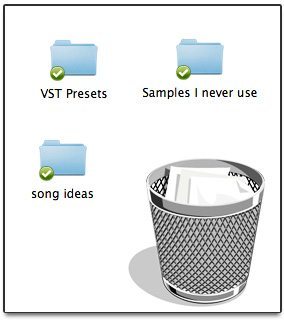
A lot of people will tell you to save everything you do. Save your samples, save your old song ideas, save your presets, save it all in case you need it in the future. While this is certainly not bad advice and trawling all that data can help get you out of a rut, sometimes the opposite is also true. You end up feeling guilty that you haven’t used some of this stuff you’ve been saving, or you spend too much time trying to use all this stuff, instead of moving on and trying new ideas and new sounds.
Every few years (sometimes more often) I go through and basically erase everything on all my hardware synths, delete all the samples I’ve been saving, and clear any unfinished song ideas off my hard drive. Definitely worth taking a few minutes to back all this stuff up to DVDr first just in case, but after that, wipe it for good. Start fresh, take the time to build your sample library from scratch, work on building new synth or effects presets, reinvent your ‘sound’ and restock your library with fresh new sounds you haven’t been passing over again and again for the last few years.
This approach may not be for everyone, but it can be quite liberating having to start over.
4. IGNORE THE SONG
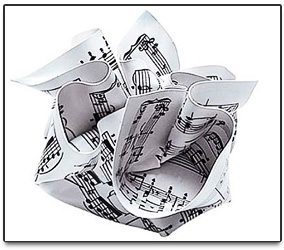 Far too often, people think that working on music only means writing songs. We often don’t give ourselves enough time or opportunity to just play with our gear for fun. There’s nothing wrong just sitting down with your favorite instrument, and just playing for the sheer joy of playing. Don’t worry about making a song, don’t worry about how useful something is, or how you might use it for your next album. Take a week and just have fun playing the presets on your synth, or making goofy rhythms on your drum machine. Sit at a piano and just aimlessly come up with fun little melodies.
Far too often, people think that working on music only means writing songs. We often don’t give ourselves enough time or opportunity to just play with our gear for fun. There’s nothing wrong just sitting down with your favorite instrument, and just playing for the sheer joy of playing. Don’t worry about making a song, don’t worry about how useful something is, or how you might use it for your next album. Take a week and just have fun playing the presets on your synth, or making goofy rhythms on your drum machine. Sit at a piano and just aimlessly come up with fun little melodies.
You need breaks like this to remind yourself of why you got into making music in the first place, and to remember that music is more than just the end result. Certainly we all take pride in a song or album that’s well done after a lot of work, but you have to enjoy all the moments that come before that too, or else what’s the point? Use the time when you’re in a rut to find the fun in the simple things again. To remember that joy you felt when you first started putting your fingers on the strings, keys or drum pads hearing how YOU were affecting sound. This can go a long way towards keeping you from getting burned out, and having fun is never a bad thing.
5. COLLABORATE!
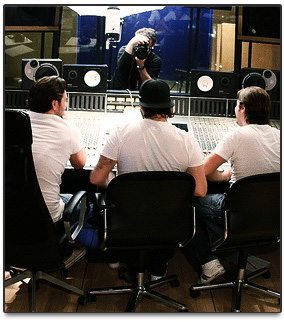 Most producers these days seem to work in a bubble, home alone and doing it all solo. Indeed, for many people, that’s the appeal of something like electronic music in the first place, that ability to do it all by yourself. But sometimes working with someone else can be a great way to get new ideas. Seeing how someone else approaches something you’ve been doing the same way for years can make you rethink your methods and spur on new ideas.
Most producers these days seem to work in a bubble, home alone and doing it all solo. Indeed, for many people, that’s the appeal of something like electronic music in the first place, that ability to do it all by yourself. But sometimes working with someone else can be a great way to get new ideas. Seeing how someone else approaches something you’ve been doing the same way for years can make you rethink your methods and spur on new ideas.
Collaborating can be anything; asking someone to redo the mixdown on one of your songs, swapping remixes, or equally writing a brand new song together (in real life or online). Maybe it’s worthwhile to get out of your comfort zone even, and work with a musician you wouldn’t normally be interested in. If you write banging techno most of the time, post a note at a local college seeing if any flute or violin players are interested in working together. Some of the most memorable classic tunes of our time started this way, it’s different from the norm and stands out. Or it doesn’t work, and you both go your own ways, but at least you tried.
At the very least you gain insight into how other people work, and that can often be rewarding by itself. Sometimes just talking to other musicians face to face about how they get over writer’s block can be the most helpful thing of all. It’s a reminder that you’re not the only one going through it, and you might just get some ideas you wouldn’t have thought of on your own.
There’s also a less direct and less active form of collaborating I’d recommend, and that’s just going to see a musical performance in person. Go to a concert, a club night, anywhere you can see music being performed by someone other than you. Check out a style of music you might never have seen before. Hit up a jazz night, go to the symphony, check out a local world music jam session, watch street performers make do with much less than you have available. There’s a ton of music out there waiting to be heard, don’t limit yourself to only one genre or by going to the same places you’ve been going to for years. Let other people provide the inspiration you need to get through a creative dry spell.
6. LIMIT YOUR TOOLS
Many times having too much gear can be as overwhelming as feeling like you don’t have enough. Try picking one piece of gear you own, real or virtual, and writing a song using only that. It can be a synth, guitar, drum, softsynth, plug-in, whatever.
Limiting yourself to only one tool/instrument FORCES you to be creative, you have no choice as you’re going to be working differently than you normally do trying to achieve the same results. Some people are able to mentally just block out the other gear in their studio to do this, while other’s like myself prefer to pack up the bits I’m not going to be using and put them in the closet. Truly out of sight and out of mind. And as with some of the tips mentioned earlier, even if you still feel stuck in a rut, a few days of doing this will surely help you learn your gear better.
7. DO NOTHING
 The last idea I want to suggest is also the one people seem the most resistant towards, and that’s to do nothing. Creativity is not something that most people can turn on when they want, it comes in waves, sometimes it’s there, sometimes it’s not.
The last idea I want to suggest is also the one people seem the most resistant towards, and that’s to do nothing. Creativity is not something that most people can turn on when they want, it comes in waves, sometimes it’s there, sometimes it’s not.
No matter what you do, or how hard you try, there’s going to be times when the magic is just not happening. So don’t stress over the times when it’s not working for you, get on with other areas of your life and trust that the muse will return when the time is right. It took me many years to come to terms with this myself, but I’m much less stressed when I have writer’s block now than when I used to.
Use the time to take care of the other things in your life that get in the way of your writing when you are having a good run of inspiration:
- Make sure all your studio backups are up to date. Digital data does not exist if it’s not in at least 3 places, so don’t just rely on that external HD for back up. Burn important things to DVDr, or use an online backup service for a more secure off-site options.
- Clean your studio, your gear, etc. It’s amazing how dust gets everywhere (even when you cover your gear) and how quickly contacts, guitar strings, patch cables, etc can start to tarnish or corrode.
- Get all those house chores and projects done you’ve been putting off, spend time with your significant other, catch up with friends, wash your car, whatever. All the mundane things in life (no offense to the significant others!) that seem to intrude into your music when you’re on a roll can be addressed now. The more you get done when the music is NOT happening, the more time you’ll have for music when it is.
- Live more. Seems kind of funny, but a lot of our inspiration comes from what we do and experience in life, and it can be hard to get that kind of stimulus when we’re stuck in a studio all day desperate for ideas. Get outside, go someplace new, visit a park, forget about music for awhile. Just enjoy being alive.
EVERY ARTIST STRUGGLES
I hope some of these ideas will help you in the future should you ever find yourself in a rut. More than anything you should remember that you’re not alone in what you’re going through.
The greatest artists and musicians of all time all struggled with creative blocks, as well as the negative thinking that comes with them. Sometimes it can take months or even years to get over slow times, but you WILL get over them. I find that for whatever reason, after a long bout of writer’s block, I seem to come back stronger than ever. I have more ideas, and my songs and production chops seem to be better than before I started having issues.
Maybe our brains just need time to recharge and recover from the prolonged periods of intense concentration that come with the artistic thought process. Maybe it’s like our muscles, in that it’s not the activity that makes us stronger, but the recovery period afterward that helps us improve. I don’t know, but I do know that staying positive and truly believing that you can get through the creative down times makes all the difference.
Editor’s Note: This originally took the form of a PDF entitled “Chasing Inspiration” – distributed by one of our awesome forum members, Tarekith.
Tarekith is the owner of Inner Portal Studio a Seattle-based facility with over 12 years experience providing quality mastering and mixdowns of electronic music for producers around the world. He’s been writing, releasing, performing and DJing electronic music of all genres for over 20 years. His blog, original music, DJ mixes, and audio production related tutorials are available for free at http://tarekith.com.


